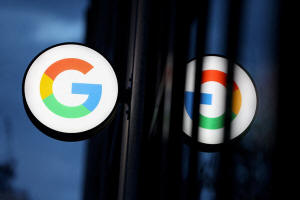Google has an illegal monopoly on search, US judge finds
 Send a link to a friend
Send a link to a friend
 [August 06, 2024] By
David Shepardson and Mike Scarcella [August 06, 2024] By
David Shepardson and Mike Scarcella
WASHINGTON (Reuters) -A U.S. judge ruled on Monday that Google violated
antitrust law, spending billions of dollars to create an illegal
monopoly and become the world's default search engine, the first big win
for federal authorities taking on Big Tech's market dominance.
The ruling paves the way for a second trial to determine potential
fixes, possibly including a breakup of Google parent Alphabet, which
would change the landscape of the online advertising world that Google
has dominated for years.
It is also a green light to aggressive U.S. antitrust enforcers
prosecuting Big Tech, a sector that has been under fire from across the
political spectrum.
"The court reaches the following conclusion: Google is a monopolist, and
it has acted as one to maintain its monopoly," U.S. District Judge Amit
Mehta, Washington, D.C., wrote. Google controls about 90% of the online
search market and 95% on smartphones.
The "remedy" phase could be lengthy, followed by potential appeals to
the U.S. Court of Appeals, District of Columbia Circuit and the U.S.
Supreme Court. The legal wrangling could play out into next year, or
even 2026.

Shares of Alphabet fell 4.5% on Monday amid a broad decline in tech
shares as the wider stock market cratered on recession fears. Google
advertising was 77% of Alphabet's total sales in 2023.
Alphabet said it plans to appeal Mehta's ruling. "This decision
recognizes that Google offers the best search engine, but concludes that
we shouldn’t be allowed to make it easily available," Google said in a
statement.
U.S. Attorney General Merrick Garland called the ruling "a historic win
for the American people,” adding that "no company - no matter how large
or influential - is above the law."
White House press secretary Karine Jean-Pierre said the "pro-competition
ruling is a victory for the American people," adding that "Americans
deserve an internet that is free, fair, and open for competition."
BILLIONS PAID
Mehta noted that Google had paid $26.3 billion in 2021 alone to ensure
that its search engine is the default on smartphones and browsers, and
to keep its dominant market share.
"The default is extremely valuable real estate," Mehta wrote. "Even if a
new entrant were positioned from a quality standpoint to bid for the
default when an agreement expires, such a firm could compete only if it
were prepared to pay partners upwards of billions of dollars in revenue
share and make them whole for any revenue shortfalls resulting from the
change."
[to top of second column] |

The logo for Google is seen at the Google Store Chelsea in
Manhattan, New York City, U.S., November 17, 2021. REUTERS/Andrew
Kelly/File Photo

He added, “Google, of course, recognizes that losing defaults would
dramatically impact its bottom line. For instance, Google has
projected that losing the Safari default would result in a
significant drop in queries and billions of dollars in lost
revenues.”
The ruling is the first major decision in a series of cases taking
on alleged monopolies in Big Tech. This case, filed by the Trump
administration, went before a judge from September to November of
last year.
"A forced divestiture of the search business would sever Alphabet
from its largest source of revenue. But even losing its capacity to
strike exclusive default agreements could be detrimental for
Google," said Emarketer senior analyst Evelyn Mitchell-Wolf, who
said a drawn-out legal process would delay any immediate effects for
consumers.
In the past four years, federal antitrust regulators have also sued
Meta Platforms, Amazon.com and Apple, claiming the companies have
illegally maintained monopolies.
Those cases all began under the administration of former President
Donald Trump.
Senator Amy Klobuchar, a Democrat who chairs the Senate Judiciary
Committee's antitrust subcommittee, said the fact that the case
spanned administrations shows strong bipartisan support for
antitrust enforcement.
"It's a huge victory for the American people that antitrust
enforcement is alive and well when it comes to competition," she
said. "Google is a rampant monopolist."

When it was filed in 2020, the Google search case was the first time
in a generation that the U.S. government accused a major corporation
of an illegal monopoly. Microsoft settled with the Justice
Department in 2004 over claims that it forced its Internet Explorer
Web browser on Windows users.
(Reporting by David Shepardson and Mike Scarcella in Washington and
Jody Godoy in New York; Writing by Chris Sanders; Additional
reporting by Arsheeya Singh Bajwa in Bengaluru; Editing by Peter
Henderson, Matthew Lewis and Leslie Adler)
[© 2024 Thomson Reuters. All rights
reserved.]
This material may not be published,
broadcast, rewritten or redistributed.
Thompson Reuters is solely responsible for this content. |